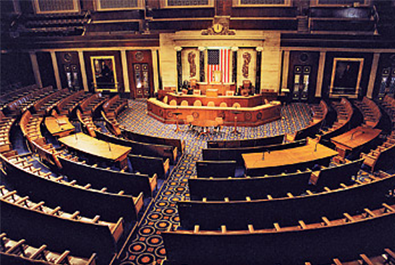Prior to going on its customary summer recess, the United States Senate did manage to pass some interesting and important legislation. While the national news cycles remain focused on Russia, tax reform and health care, Congress did get other business done — some of it, important to our industry. The following is a recap of recent Congressional action. Prior to going on its customary summer recess, the United States Senate did manage to pass some interesting and important legislation. While the national news cycles remain focused on Russia, tax reform and health care, Congress did get other business done — some of it, important to our industry. The following is a recap of recent Congressional action.
S. 88, the “DIGIT Act” – One of the key findings in S. 88, the “Developing Innovation and Growing the Internet of Things Act” (DIGIT Act), is the estimation that there will be 50 billion devices connected to the internet by 2020. That is just over two years away and it represents more than seven connected devices for every man, woman and child on Earth. The “Internet of Things”, commonly referred to as IoT, represents an economic engine that has the potential to generate trillions of dollars in new economic activity around the world. The “DIGIT Act” was passed by the Senate on August 3, 2017 and it aims to study the IoT issue at great length through several measures that involve stakeholders in government and non-governmental sectors. The bill calls for Congress to “maximize the potential and development of the Internet of Things to benefit all stakeholders, including businesses, governments, and consumers.” To that end, the bill creates a “working group” that consists of federal agency and non-governmental stakeholders, including: manufacturers, suppliers, service providers, subject matter experts, business owners, nonprofit organizations, think tanks and academia, among others, that will identify any federal regulation or statute that inhibits or could inhibit the development of IoT. The bill also seeks to ensure the proper spectrum and infrastructure is available for the IoT and sufficient safeguards are in place.
ESA will closely monitor this legislation and work with the Federal Communications Commission (FCC) to ensure the electronic security and life safety industry is well represented as the Commissioner assembles the working groups and steering committee.
S. 134, the “Spoofing Prevention Act of 2017” – How many calls a day do you get from some unknown number that ostensibly rings from some town you never heard of or care about? Despite your number being on the national “Do Not Call” (DNC) registry, many credit card companies and even some “home security” companies hire telemarketers who spoof their numbers and completely ignore DNC requirements in an attempt to get someone on the phone to take advantage of the latest credit card offer, etc. S. 134 would amend the Communications Act of 1934 to “expand the prohibition against knowingly transmitting misleading or inaccurate caller identification information to apply to: (1) persons outside the United States if the recipient of the call is within the United States, and (2) text messages. The bill also mandates the Government Accountability Office (GAO) to report on actions taken or that could be taken by the FCC and Federal Trade Commission (FTC) to combat the fraudulent provision of misleading or inaccurate caller identification information. This bill passed the Senate on August 3, 2017.
S. 190, the “Power and Security Systems (PASS) Act” – ESA is pleased to announce that the US Senate passed S. 190 on August 1, 2017, which extends the exemption for external power supplies used in security systems from “no-load mode” requirements. As mentioned in prior articles, this bill was necessary due to the pending expiration of the exemption for security and life safety systems. While the House version passed easily, the Senate version was held up for an extended period while Senators in the minority party fought over unrelated issues. The bill will now go to the U.S. House for consideration.




